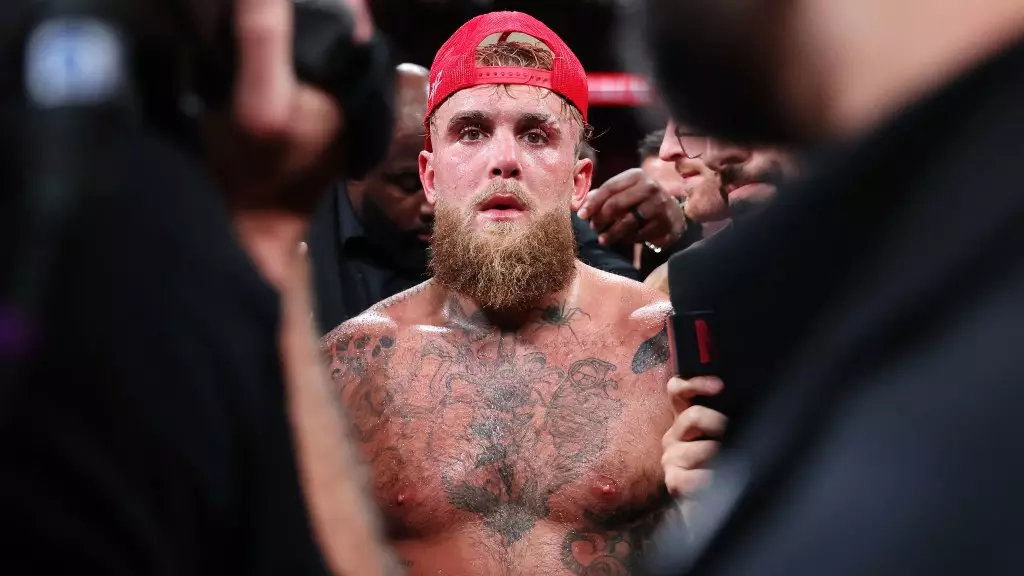The boxing world recently buzzed with excitement over a potential showdown between two of its most talked-about figures: Canelo Alvarez and Jake Paul. Initially set to meet on May 3 at T-Mobile Arena in Las Vegas, fans anticipated a spectacle that would blend traditional boxing with the flashiness of modern celebrity culture. However, in a surprising twist, Alvarez opted against this bout, sealing a deal that tied him to a four-fight series in Riyadh, Saudi Arabia. This decision has sparked discussions about the integrity and direction of professional boxing, especially in light of Jake Paul’s flamboyant persona.
Michael Bisping, a veteran fighter and current commentator, weighed in on the matter with characteristic candor. Through his YouTube platform, Bisping criticized Paul for his theatrical reaction to Alvarez’s withdrawal. His assessment of Paul’s actions reveals a broader issue within the sport: is boxing becoming more about entertainment than actual competition? Bisping dismissed Paul’s antics as a desperate attempt to maintain relevance, branding him as emblematic of everything wrong with the sport today. His call for Paul to be quiet reflects a sentiment shared by many hardcore boxing fans who yearn for a return to genuine athletic competition rather than promotional theatrics.
While critics may argue that Alvarez’s decision to back out of the Paul fight was a missed opportunity for spectacle, the champion’s focus on legitimacy and legacy deserves commendation. By redirecting his career path toward a solid series of fights in Riyadh, Alvarez reaffirms his commitment to the sport’s noble traditions. The matchup against undefeated IBF champion William Scull promises to not only bolster his legacy but also position him for potentially monumental future clashes—like the possible superfight against Terence Crawford later this year. This strategic move highlights Alvarez’s prioritization of meaningful competition over distracting figments of viral fame.
Alvarez’s withdrawal from a fight with Paul raises critical questions about the future of boxing and the role of crossover celebrities. Will fighters prioritize traditional rivalries over celebrity spectacles, or will the allure of social media fame continue to dictate matchups? The landscape of boxing is complex, and while Paul has proven adept at generating attention, his legitimacy as a boxer remains questionable. Bisping’s remarks illuminate a growing resentment among purists who feel that figures like Paul cheapen the sport. The core of boxing is about skill, honor, and legacy, an ethos that Alvarez continues to embody through his choices.
In a world where the lines between sports and entertainment often blur, Canelo Alvarez’s decision to step away from the Jake Paul debacle stands out as a refreshingly authentic choice. Michael Bisping’s candid critiques resonate for many who feel that authenticity should be at the forefront of boxing narratives. As Alvarez embarks on his four-fight journey in Saudi Arabia, fans can only hope that this return to competitive purity will inspire more fighters to prioritize their legacies over fleeting moments of catchiness in the ring. The age of flash may captivate the masses, but the heart of boxing lies in its honor and deep-rooted traditions.

